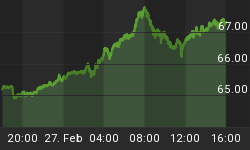In late January, in a short battle with Wall Street, an army of small investors on social media employed a classic Wall Street move to put the squeeze on a stock and help GameStop soar.
But now, a new report has emerged, attempting to blame the debacle on internet bots and fake social media accounts rather than small investors.
Cybersecurity firm PiiQ Media determined that social media bots were used to promote GameStop stock.
The firm reported that posts on Facebook, Instagram, Twitter, and YouTube hopped on trading keywords like “GME” and "Hold The Line," starting around the opening of trading and surged toward the end.
“We saw clear patterns of artificial behavior across the other four social media platforms…When you think of organic content, it’s variable in the day, variable day-to-day. It doesn’t have the exact same pattern every day for a month,” Aaron Barr, Chief Technology Officer of PiiQ said.
The report suggested organized economic or foreign actors may have played a role in the trading frenzy, but it is not certain who's behind the bots or how effective they've been. The firm estimates tens of thousands of bot accounts took part in the rallies.
The company did not analyze Reddit data but said it suspects that a similar pattern of activity took place on r/WallStreetBets.
Earlier this month, Reddit Chief Executive Steve Huffman told Congress that bots, artificial or fake accounts, had not played a “significant role” in GameStop Reddit message traffic.
“We have since analyzed the activity in WallStreetBets to determine whether bots, foreign agents, or other bad actors played a significant role. They have not,” Huffman said.
The GameStop saga started when short-sellers Citron Research and Melvin Capital placed bets that shares would fall.
However, the collective group of Reddit users from the WallStreetBets subreddit bought
the stock as hedge funds were attempting to short it. Small retail investors suddenly joined forces to push GameStop stock to amazing new heights, going to under $20 to a high of $483.
In a meantime, many retail brokerages decided to restrict new purchases of GameStop. The frenzy over GameStop stock has led most retail brokerages such TD Ameritrade, Interactive Brokers, CharlesSchwab, and Robinhood to restrict new purchases of GameStop.
However, what angered many is that, according to the decision, hedge funds could buy and sell, but on many platforms, retail investors could only sell, which was hardly fair.
Meanwhile, the US regulators are probing Robinhood for imposing temporary trading curbs.
The trading app has received requests for information from federal prosecutors, the Securities and Exchange Commission (SEC), various states attorneys general, and other financial regulators
On top of that, it’s also facing nearly 50 lawsuits related to the GameStop saga, including a class-action lawsuit from upset stockholders.
By Josh Owens for Safehaven.com
















